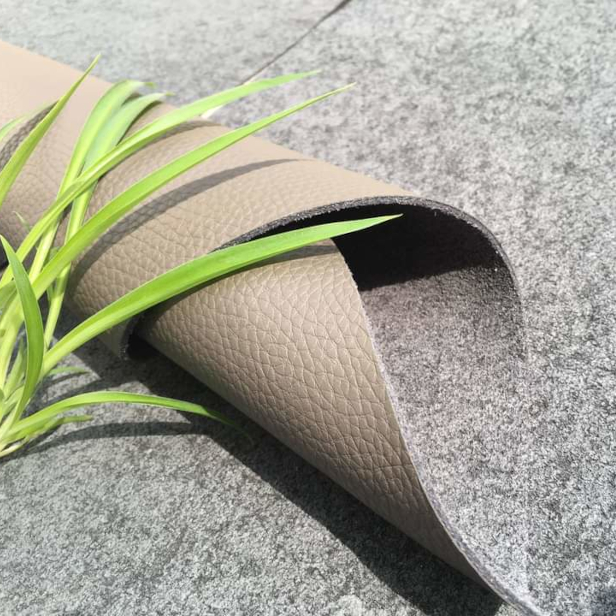Recycled leather is crafted from discarded leather materials that are shredded and bound together using either synthetic or natural binders, before being pressed into sheets.
These leather waste materials are sourced from leftover production materials (scraps and offcuts) or post-consumer goods.
The binding agents can be synthetic, such as polyurethane, or natural, like natural rubber or wood bark.
To enhance strength and flexibility as needed, additional components such as natural fibers or recycled textiles may be incorporated into the mixture. The resulting composite material is then pressed into sheets or rolls, ready for use in various applications, including fashion, accessories, upholstery, and automotive industries.
Recycled leather presents an attractive solution to the environmental challenges associated with conventional leather production. By repurposing waste materials and reducing reliance on virgin resources, recycled leather offers a sustainable alternative that supports waste reduction while minimizing pollution, water, and energy consumption typically associated with conventional leather production. Additionally, the production process of recycled leather emits significantly fewer greenhouse gases compared to conventional leather production.
It’s important to acknowledge that recycled leather may have reduced durability compared to genuine leather.
Furthermore, the overall environmental impact of recycled leather compared to traditional leather depends on the additional materials used and their sourcing. If a large proportion of the final material comprises synthetic materials, it may considerably diminish the environmental benefits, as it increases the carbon footprint and reduces the material’s biodegradability.
Recycled Leather belongs to SANE Approved Material List. SANE recognizes certifications such as RCS 100 and GRS for recycled leather. For recycled leather not yet certified RCS 100 or GRS, the material production will need to be certified SANE by an accredited certifier. A product made of at least 90% SANE Approved Material and produced in a facility holding a SANE Scope Certificate is eligible to be certified SANE.
